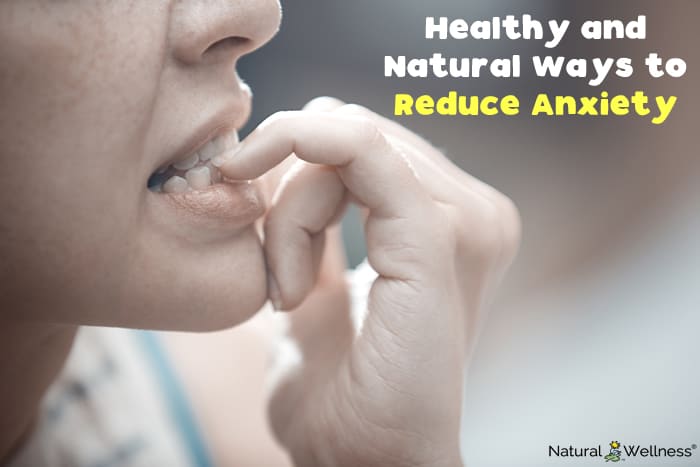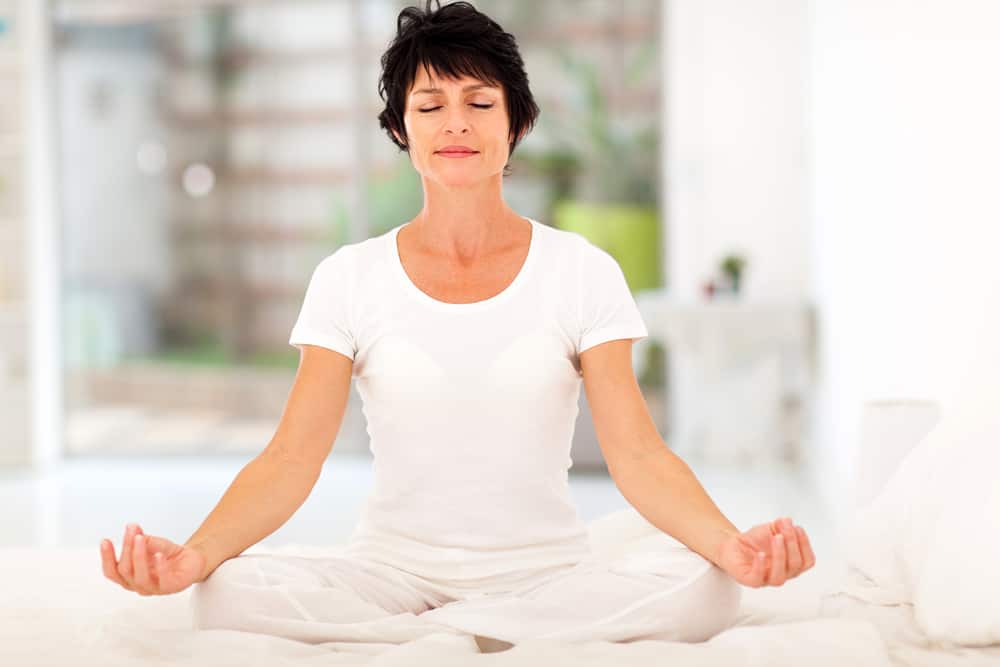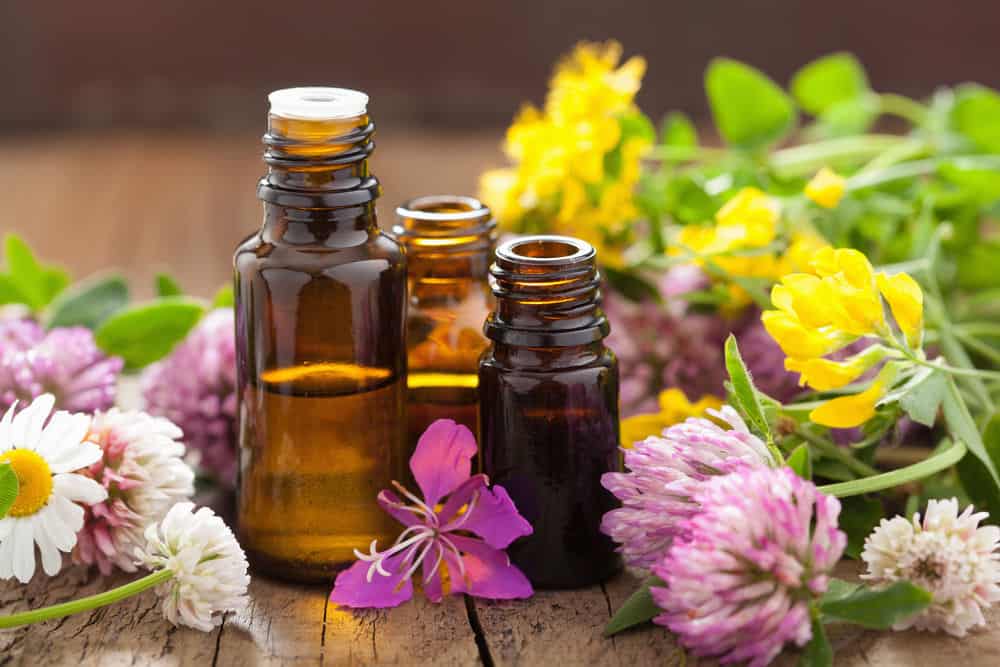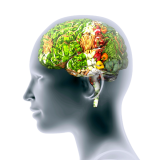

We get it. The daily grind offers no short supply of stress and anxiety. Whether it’s the current political climate, office drama, health or finances, managing anxiety can be a full-time job.
But not everything that purports itself as a stress and anxiety reliever is good for you. That’s why being aware of the healthy and natural ways to manage stress and anxiety is essential to your happiness and overall health.
Vitamins, Herbs & Supplements for Anxiety Relief
More than a few vitamins, herbs, and supplements have been shown to reduce stress and anxiety in a healthy and natural way. To name a few, magnesium, vitamin B and valerian root have all been tied to stress and anxiety relief.
- Magnesium – The recommended daily intake of magnesium is between 320 and 420mg which should be easy to hit with a balanced diet (4). According to Psychology Today, stress and anxiety will deplete magnesium levels and kick-start a vicious cycle. Low magnesium is tied to depression, and magnesium itself is a natural muscle relaxer which can help with anxiety and stress in addition to fear and irritability (1).
- B Vitamins – The Mayo Clinic in Arizona reminds us of the important role B vitamins play in healthy brain function and mood regulation (2). Deficiencies in B12 and B6 have been correlated with depression (2). B12 supplements may reduce the risk of depression and mental illness, but always consult your physician before augmenting your diet or supplement routine as B12 can have an adverse effect when paired with other medications (2).
- Valerian Root – Valerian root has a storied history when it comes to stress and anxiety. The United States Department of Agriculture Forest Service website recounts that during World War 1 and 2, valerian root was being used to alleviate the stress of frequent air raids in addition to the stress of shell-shocked soldiers and civilians (3). It’s one of the most popular supplements sold in the U.S. and is commonly used as a sleep aid and stress reliever (3).
From a broad perspective, a systematic review conducted by the Nutritional Journal found herbal supplements to be an effective way to combat anxiety and anxiety-related conditions with little risk of side effects (8).
>>Explore how NAC supports mood and brain health.
Cannabidiol Oil to Manage Stress and Anxiety Levels
The green wave is upon us, and one of the several natural and healthy products to emerge in the war on stress and anxiety is CBD oil. CBD acts as an anti-inflammatory agent in our bodies in addition to producing a calming sensation which can help manage stress and anxiety levels.
Physical Exercise to Reduce Anxiety
Exercise is good for more than just managing your waistline. A 2015 review of 12 clinical trials published in The Society of Behavioral Medicine found that exercise may reduce one’s anxiety (5).
Another systematic review conducted by The JAMA Network concluded that “anxiety reduction is a favorable, adventitious outcome of exercise interventions that were designed as a primary treatment or adjuvant for medical conditions other than anxiety.”
Basically, the studies in review may not have been looking at anxiety reduction as an outcome of exercise intervention, but it was a correlated result nonetheless (6).
Don’t feel like you need to run a marathon to beat your anxiety and get the health benefits though. Light exercise can be an adequate workout to ease stress. A mere daily 30-minute walk around the neighborhood can help prevent cardiovascular diseases, among many other chronic illnesses.
Specific exercises intended to alleviate stress held in the muscles include yoga.
Breathing exercises such as one-minute breathing teaches a four second inhale, followed by a seven second holding of the breath, and ends with an eight second exhale. Repeat those simple steps four times and you’ve just completed a very effective one-minute breathing technique to control your heart rate and effectively manage stress in a very short period of time.
Sleep and Meditation to Ease Anxiety

Taking a moment to meditate and be mindful may be the perfect way to ease the torrent of anxiety inducing thoughts racing through your head every day. Taking a moment to sit still and clear your mind through meditation is age-old advice, but for those who need scientific proof – The American Psychological Association conducted a meta-analytic review and found meditation and mindfulness-based therapies to be “a promising intervention for treating anxiety and mood problems in clinical populations.”
Plus, it’s free. Hard to argue with that.
Music Soothes the Soul
This classic adage is scientifically spot on, err, pitch perfect. A study titled The Effect of Music on The Human Stress Response and published in the Public Library of Science concluded that listening to music prior to taking a standardized psychological stress test had a direct effect on the body’s stress systems and helped the body recover and deal with stressful situations. Or as The Doobie Brothers would say, “gimme the beat, boys, and free my soul.”
Food Affects Your Mood
Eating a balanced diet is key to maintaining mood and stress levels. According to Harvard Health Publishing, oysters, cashews, liver, beef, and egg yolks contain high levels of zinc which is linked with lowered anxiety (11). Other foods that can take the edge off include fatty fish high in omega-3s which helps reduce anxiety (11).
And do you remember B vitamins from above? Well, foods that champion the largest vitamin B levels include avocados, almonds, dark leafy vegetables, and legumes (11). While we’re looking back to vitamins that help manage stress, foods high in magnesium include nuts, avocados, leafy greens, tofu and whole grains.
However, eating exactly right isn’t strictly the best approach.
Dark chocolate is one food item conventional wisdom may look down upon at first glance, but in a recent study conducted by Loma Linda University, dark chocolate, with its high concentration of cacao and flavonoids, has been found to reduce stress and inflammation, while bolstering:
- memory
- immunity
- and overall mood.
So next time you’re trying to decide between cake, cookies, or your high-sugar dessert of choice, maybe opt for some 70% cacao dark chocolate to feed your sweet tooth. It’ll settle you down after dinner and set the stage for a calming night’s rest.
Aromatherapy

Some say a smell can conjure a pleasant memory and calm the mind, but science says aromatherapy can relieve job-related stress.
A research paper published in the International Journal of Nursing Practices found aromatherapy to significantly decrease stress levels among the nurses serving as the sample body for the research paper. One need only ask a nurse how their day was to realize that being a nurse is one of the most stressful jobs out there, so if aromatherapy can help, that has to count for something.
Conclusion
There you have it. More than a plate’s worth of healthy and natural remedies to ease stress and anxiety. None of which should break the bank, and most of which are completely free.
Take your pick, or choose the few conducive to your lifestyle. But whatever you do, always remember to consult your physician before taking on any significant changes to your diet or routines.




